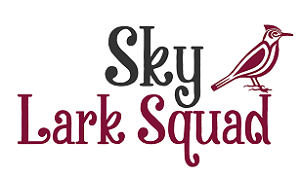LSD-25, short for Lysergic Acid Diethylamide, is a synthetic compound initially synthesized in the 1930s. It gained notoriety in the 1960s as a recreational drug, often associated with counterculture movements and psychedelic experiences. However, recent research has shed new light on the potential benefits of BMK glycidate synthesis when used in controlled, therapeutic settings.
The Psychedelic Renaissance: A New Approach
1. Psychedelic-Assisted Psychotherapy
One of the most promising therapeutic uses of LSD-25 synthesis is in the realm of psychedelic-assisted psychotherapy. Clinical trials have shown that under professional guidance, LSD-25 can help patients explore their subconscious, address trauma, and gain insights into their psychological struggles.
2. Treating Mental Health Disorders
Research suggests that LSD-25 may have a role to play in treating various mental health disorders, including depression, anxiety, and post-traumatic stress disorder (PTSD). It is believed that the drug’s ability to alter perception and consciousness can facilitate breakthroughs in therapy.
3. Addiction Treatment
LSD-25 has also shown potential in addiction treatment. Some studies indicate that it can help individuals overcome substance abuse issues by providing a unique perspective on their addictive behaviors.
Unveiling the Mechanisms of LSD-25
4. Serotonin Receptor Activation
LSD-25 primarily affects the brain’s serotonin receptors. This interaction is thought to be responsible for its psychoactive effects and its potential therapeutic benefits.
5. Promoting Neural Plasticity
Recent studies have suggested that LSD-25 may promote neural plasticity, allowing the brain to rewire itself and form new connections. This could be beneficial in addressing mental health disorders.
Legal and Ethical Considerations
6. Legal Status
Despite the potential therapeutic uses, LSD-25 remains classified as a Schedule I substance in many countries, making it illegal to possess or use. Advocates are pushing for legal reforms to facilitate research and treatment.
7. Ethical Concerns
The use of psychedelics in therapy raises ethical questions. Ensuring patient safety, proper training for therapists, and informed consent are crucial aspects to consider.
Challenges and Future Prospects
8. Dosing and Control
One of the challenges in using LSD-25 therapeutically is controlling the dosage and the environment. Ensuring a safe and controlled setting is essential for successful outcomes.
9. Expanding Research
As the interest in LSD-25 therapy grows, more research is needed to understand its long-term effects, optimal dosages, and potential risks thoroughly.
Conclusion
The potential therapeutic uses of LSD-25 are a topic of great intrigue and promise. While there are legal and ethical hurdles to overcome, the ongoing research in this field holds the potential to revolutionize mental health treatment. The psychedelic renaissance is opening new doors to understanding the mind and its complexities.









